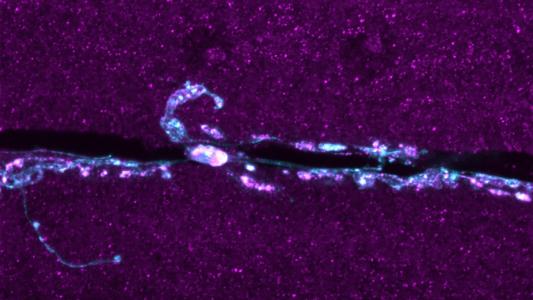Mars Petcare — the animal-focused subsidiary of the multinational candy maker behind Snickers and M&M’s — has announced plans to create the largest and most comprehensive biobank in the world for pets.
The biobank will recruit 20,000 pets — split evenly between cats and dogs — over the next decade, collecting samples from those pets to create a long-term study aimed at parsing the differences in aging pets that stay healthy versus those who develop disease.
“The overall aim is to improve pet care of the future and health outcomes, and to improve the health span and quality of life of our pets,” Kay O’Donnell, vice president Mars Petcare’s Waltham Petcare Science Institute, told Axios.
The biobank will recruit 20,000 pets — split evenly between cats and dogs — over the next decade.
The biobank is kicking things off with dogs, currently recruiting healthy pups between 6 months and 10 years old that are clients of two of the company’s vet chains, VCA Animal Hospitals and Banford Pet Hospital.
Cat recruitment is scheduled to begin later this year.
Biobanking: Biobanks are large repositories that store biological samples, such as blood and DNA, often combining them with demographic data and medical histories to discover patterns in the data.
These provide massive amounts of data that researchers can analyze and sift through. Over 500,000 people have volunteered for the huge UK BioBank, which has generated a ton of interesting research on everything from cancer to chronic pain.
Although it aims to be the most comprehensive, Mars’ pet biobank will not be the only one. The Cornell Veterinary Biobank, which got its accreditation in 2019, collects samples from healthy and sick animals alike to study pet diseases and aging.
In addition to studying and treating pet diseases per se, some of the research may end up helping human health as well. Research groups working on canine cancer and fungal vaccines hope success in dogs will be adopted by humans, too.
Pet diseases and aging: Biobank pets will have blood and fecal samples taken annually for ten years, Axios reported, and will receive free vet care, activity tracking, and genetic testing.
The biobank will be the first to take a general population of pets — purebreds, mutts, and moggies.
Biobank samples will be used to create a long-term study aimed at parsing the differences in aging pets that stay healthy versus those who develop disease.
Inevitably, some will develop disease as they age, while others will stay healthy; with the data available in the biobank, the hope is to spot “early recognition of changes, and therefore the ability to intervene early and improve outcomes,” Axios quotes O’Donnell.
As Axios points out, other pet biobank efforts are already beginning to show research benefits. O’Donnells Waltham Petcare Institute can detect chronic kidney diseases in cats two years earlier thanks to a new AI-created test, while Cornell and the Dog Aging Project have already published four papers, including one in Nature.
In the long run, the biobank may benefit not only our friends, but ourselves.
“We aim for this biobank to drive breakthroughs in scientific knowledge for the future of pet health,” Mars Petcare president Poul Weihrauch said in a statement.
We’d love to hear from you! If you have a comment about this article or if you have a tip for a future Freethink story, please email us at [email protected].






